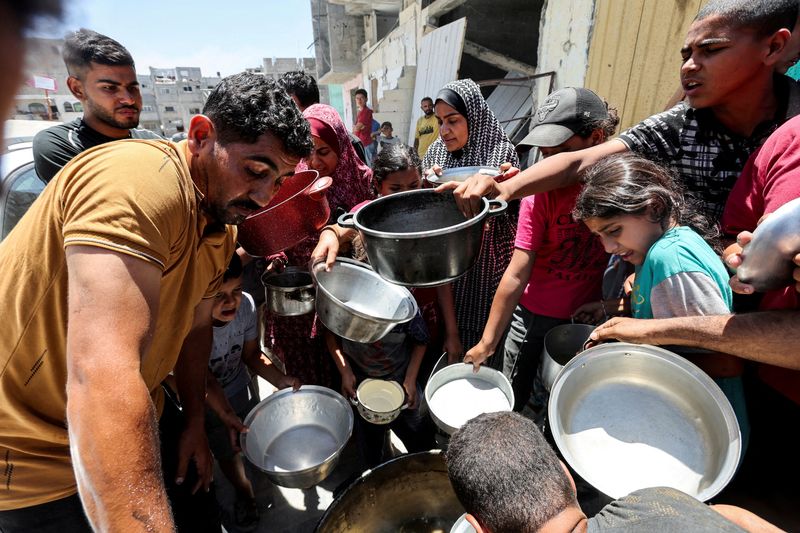Aidan Lewis
(Reuters) – Food supplies in southern Gaza are at risk after Israel expanded its military operations and people displaced by the offensive are facing a public health crisis, a senior United Nations official said on Friday.
Carl Skau, deputy executive director of the United Nations World Food Programme, said that while hunger and the risk of famine have been most severe in northern Gaza in recent months, the situation is also worsening in the south.
In the early days of the eight-month war, the main route for aid was from Egypt to southern Gaza, but this route was all but cut off since early May when Israel expanded its military operation in the city of Rafah, where many Gaza residents had taken refuge.
“We had stockpiled food before the operation in Rafah and were distributing it to people, but that is starting to run out and we are not getting the supplies we needed like before,” Skau said after a two-day trip to Gaza.
As Israel advanced on Rafah, many of the people who had taken refuge there fled again north, to the evacuation zone in the coastal town of Al Mawashi.
“The situation of around one million people displaced from Rafah and now crammed into a small space along the coast is a displacement crisis that poses a real protection disaster,” Skau said.
“It’s hot, the sanitation is awful. We were driving through rivers of sewage. A public health crisis is on the way.”
Aid distribution has been hampered by military operations, delays in Israeli approvals and growing lawlessness inside the Gaza Strip.
Skau said that while more food was arriving in northern Gaza, basic health care, water and sanitation were needed to “completely stave off hunger in the north.” Israel needed to provide more medical supplies to Gaza, he said.
Israel says it places no limits on humanitarian aid to civilians in Gaza and blames the United Nations for slow and inefficient deliveries.
The war began on October 7 when Hamas fighters attacked Israel, killing 1,200 people and kidnapping about 250, according to an Israeli tally.
Gaza health officials say the Israeli response has left more than 37,000 Palestinians dead and left large areas of Hamas-controlled territory in ruins.
Skau said he was stunned by the scale of the destruction and that people in Gaza are exhausted by the conflict.
“When I was there in December, people were angry, frustrated and tense,” he said. “Now it feels like people are tired and fed up. They just want this to end.”
(Edited by Ross Russell)


